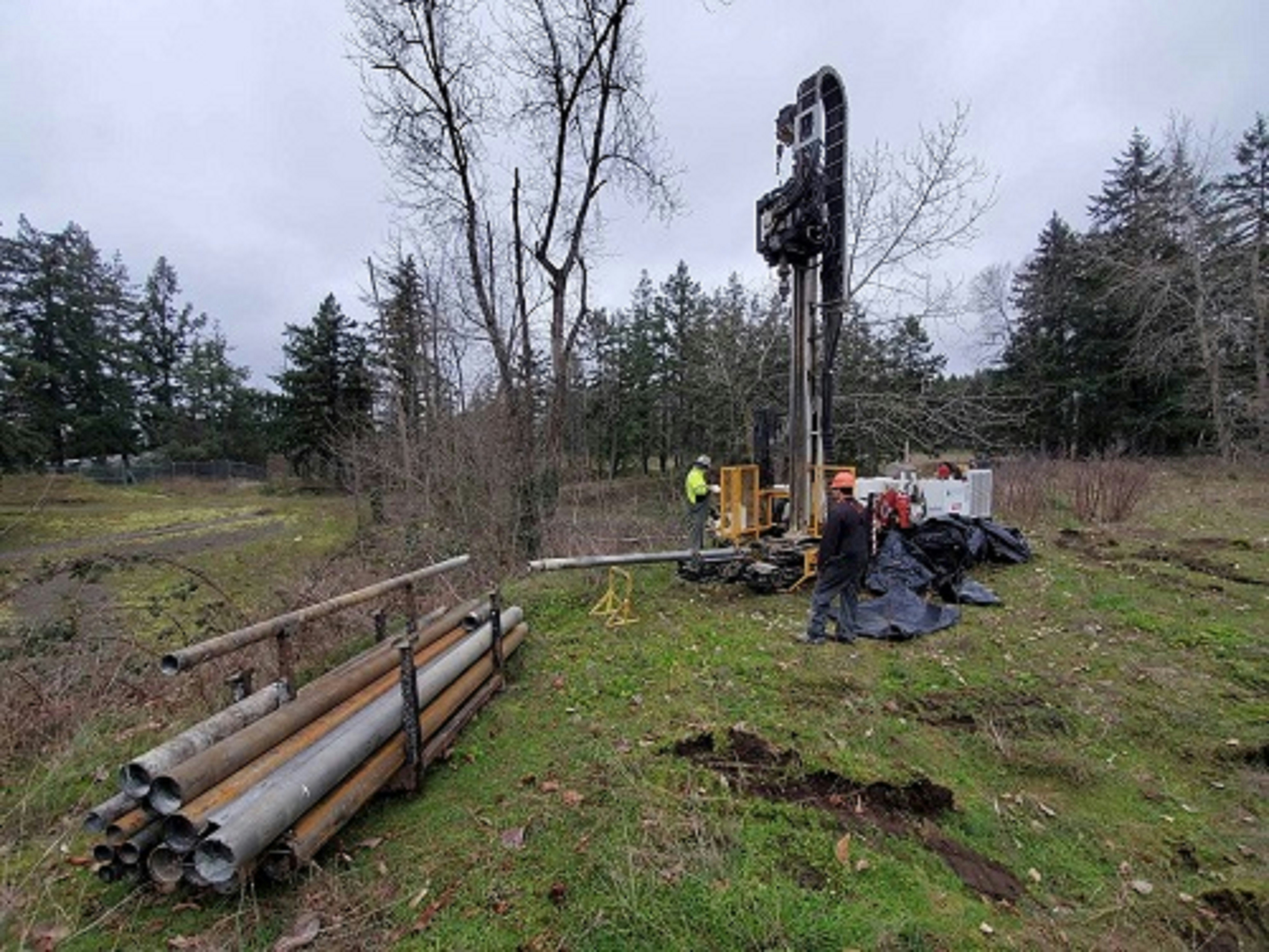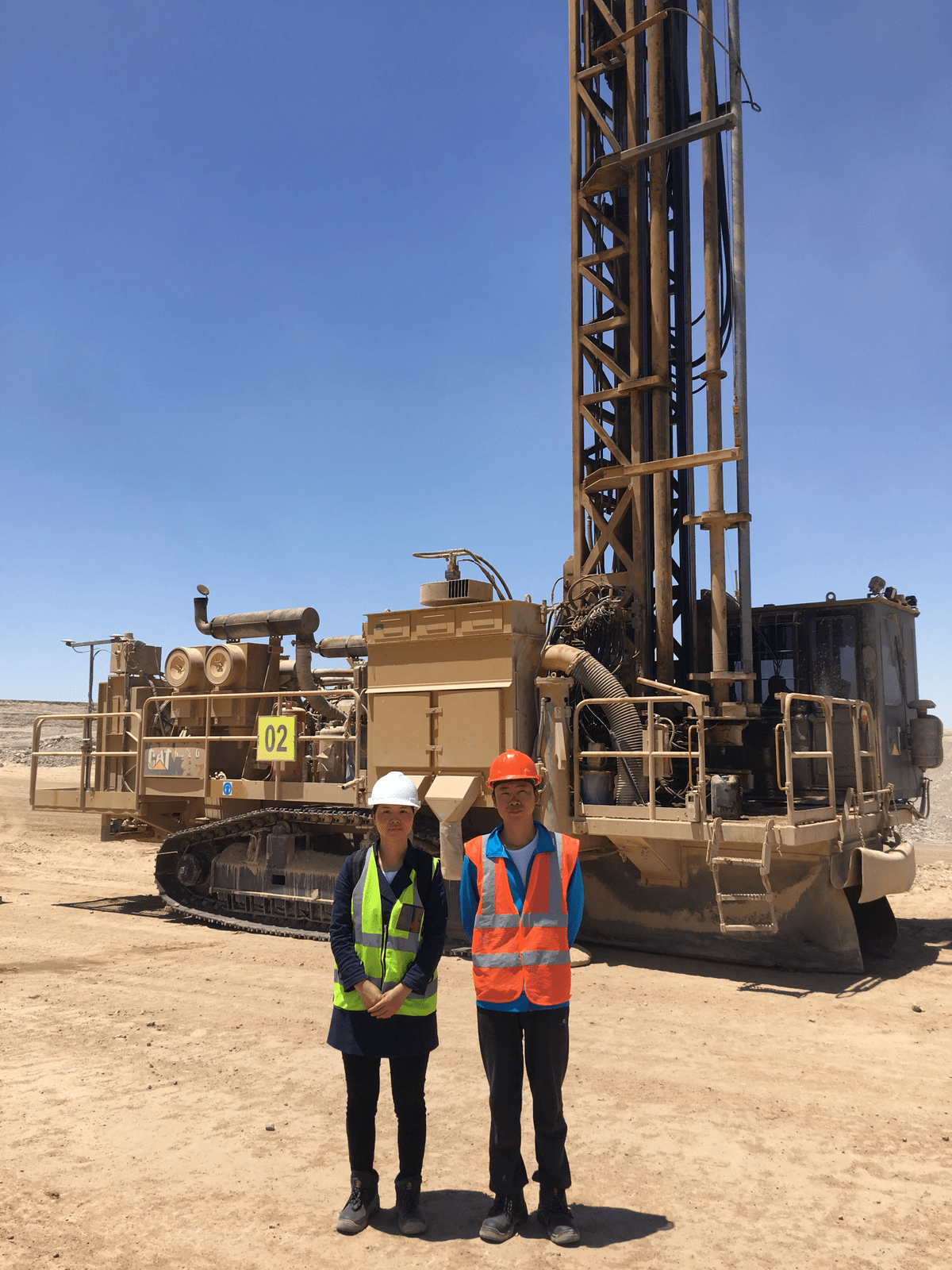Introduction

When it comes to securing a reliable water source, understanding the cost of water well drilling is essential. Whether you're a homeowner or a business owner, investing in a water well can provide long-term benefits and savings. But before diving in, it's crucial to research the best water well drilling options and choose the right company for the job. Maximizing efficiency in well digging and implementing budget-friendly tips can help minimize the overall cost of well drilling.
Understanding the Cost of Water Well Drilling
Drilling a water well can provide a reliable source of fresh water for your property. But before you dive in, it's crucial to understand the various cost factors involved.
Here's a breakdown of what to consider:
- Drilling Depth: The deeper the well needs to go, the more it will cost. Shorter wells for shallow water tables can be drilled for as little as $10 per foot, while deeper wells requiring more complex drilling methods can reach $65 per foot.
- Location and Geology: Drilling in remote areas or through hard rock formations will be more expensive than flat, easily accessible locations with soft soil.
- Well Diameter: Wider casings for larger water flow will cost more than narrow casings for basic household use.
- Additional Services: Costs may increase depending on if you need well development (clearing sediment), pump installation, or water treatment systems.
Beyond the initial drilling, factor in ongoing maintenance and potential water testing.
By getting quotes from several reputable well-drilling companies in your area, you can ensure you get the best value for your investment. Research customer reviews and compare pricing to make an informed decision.
Researching the Best Water Well Drilling Options
Researching different water well drilling techniques and technologies can help you make an informed decision that aligns with your budget and water needs.
After researching different water well drilling techniques and technologies, it's essential to consider the reputation and experience of potential drilling companies. Look for a company with a proven track record of successful projects and satisfied customers. Additionally, consider the equipment and technology that each company uses, as this can impact the efficiency and quality of the drilling process. Finally, don't forget to ask for references and do some background research to ensure you're choosing a reliable and reputable water well drilling company.
Choosing the Right Water Well Drilling Company
Selecting a reputable and experienced water well drilling company is crucial for ensuring your property's safe, reliable water source. Here are some key factors to consider when making your decision:
- Experience and Reputation: Look for companies with a proven track record of success in your area. Research online reviews and ask for references to see what past customers say about their experience.
- Qualifications and Licensing: Ensure the company has the proper licenses and certifications to operate in your region. Verify that their workers are adequately trained and insured.
- Communication and Transparency: Choose a company that is upfront and clear about the drilling process, costs, and potential challenges. They should be happy to answer your questions and address any concerns you may have.
- Quality Equipment and Techniques: Inquire about the types of equipment the company uses and their drilling methods. Modern technology can help ensure a more efficient and successful drilling process.
- Warranties and Guarantees: Ask about the warranties offered on the well itself and the workmanship. A reputable company will stand behind their work and provide peace of mind.
By carefully considering these factors, you can be confident in choosing a water well drilling company that will provide you with a high-quality well that meets your needs for years.
Maximizing Efficiency in Well Digging
Efficiency plays a significant role in minimizing costs associated with well digging. Utilizing advanced equipment and techniques can streamline the process and reduce labor expenses.
Maximizing efficiency in well digging also involves careful planning and coordination. By scheduling the work in a logical sequence and ensuring that all necessary materials and equipment are on-site when needed, delays can be minimized, and productivity can be maximized. Additionally, investing in proper training for the well-digging team can enhance their skills and effectiveness, ultimately leading to a more efficient operation.
Budget-Friendly Tips for Water Well Drilling Costs
Exploring cost-saving strategies such as bundling services, scheduling off-peak drilling times, or opting for eco-friendly materials can help keep water well drilling costs manageable.
In addition to exploring cost-saving strategies, it's essential to consider the depth and location of the well before drilling begins. By conducting a thorough survey of the area, you can ensure that the well is placed in an optimal location for accessing water while minimizing drilling costs. Additionally, consulting with experienced well drilling professionals can provide valuable insights into potential cost-saving measures specific to your unique situation.
What to Consider Before Water Well Drilling

Assessing Your Water Needs
Before embarking on a water well drilling project, it's crucial to assess your water needs. Consider factors such as the size of your household, daily water usage, and potential future needs. This will help determine the appropriate well capacity and ensure that you have a sustainable supply of well water for years to come.
Surveying Your Property's Geology
Surveying your property's geology is essential in determining the feasibility of well drilling. Factors such as soil composition, rock formations, and groundwater levels can impact the success and cost of well digging. Consulting with geotechnical experts can provide valuable insights into the geology of your property and guide you in making informed decisions.
Consulting with Tianhe, the Professional Geotechnical Drilling Manufacturer
Partnering with Tianhe, a leading geotechnical drilling manufacturer, can provide invaluable expertise in assessing the geological conditions of your property. Their team of professionals can offer comprehensive geotechnical drilling solutions tailored to your specific needs, ensuring efficient and cost-effective well drilling.
Understanding Permitting and Regulations
Before proceeding with water well drilling, it's crucial to understand the permitting and regulatory requirements in your area. This includes obtaining necessary permits, adhering to environmental regulations, and complying with local zoning laws. Failure to do so can result in costly delays or legal issues that could significantly impact the overall cost of well digging.
It's also important to consider the potential impact of well drilling on the surrounding environment. This includes assessing the risk of contamination to nearby water sources, as well as the potential disruption to local ecosystems. By understanding and addressing these concerns upfront, you can minimize the environmental impact of your well drilling project and avoid costly remediation efforts down the line.
Cost-Effective Water Well Design and Planning

When it comes to cost-effective water well design and planning, the optimal well location and depth are crucial factors to consider. By conducting a thorough hydrogeological survey of your property, you can determine the best location for your well based on water availability and quality. Additionally, understanding the depth of the aquifer will help you drill a well that meets your water needs without unnecessary digging expenses.
Optimal Well Location and Depth
Selecting the right well location and depth can significantly impact the cost of water well drilling. By consulting with geologists or hydrogeologists, you can identify areas with high groundwater potential, reducing the risk of drilling into dry or low-yield zones. This proactive approach not only saves money on drilling costs but also ensures a reliable supply of well water for years to come.
Selecting the Right Well Water Pump
Choosing the right well water pump is crucial for ensuring a reliable and cost-effective water supply for your home. Here are some key factors to consider when selecting a pump:
- Well Depth: The depth of your well is the primary factor determining the pump type. Shallow wells (less than 25 feet) typically use jet pumps, while deep wells (between 25 and 400 feet) require submersible pumps.
- Water Demand: Consider the daily water usage of your household, including the number of occupants and appliances. You'll need a pump with a capacity (gallons per minute, GPM) that meets your peak demand.
- Pump Size and Efficiency: Pump size should correspond to your well depth and water needs. Opt for an energy-efficient pump model to minimize electricity consumption over time.
By carefully evaluating these factors, you can select a well water pump that delivers optimal performance and saves you money on energy costs in the long run.
Utilizing Efficient Water Well Construction Techniques
Utilizing efficient construction techniques during the drilling process can lead to substantial cost savings. Modern drilling technologies such as rotary drilling or air percussion drilling offer faster and more precise results compared to traditional methods, reducing labor costs and equipment usage. Additionally, proper casing installation and sealing techniques are vital for preventing contamination and prolonging the lifespan of your water well.
In addition to the drilling process, proper well development and maintenance are crucial for ensuring the longevity of your water well. Regular well inspections, water quality testing, and maintenance checks can help identify potential issues early on and prevent costly repairs down the line. By investing in routine maintenance, you can avoid unexpected breakdowns and ensure that your water supply remains clean and reliable.
Practical Tips for Minimizing Water Well Drilling Costs

When it comes to minimizing the cost of water well drilling, well maintenance and upkeep are crucial. Regular inspections, cleaning, and repairs can prevent costly breakdowns and extend the lifespan of your well. By investing in proper maintenance, you can avoid unexpected expenses and ensure the efficiency of your water supply for years to come.
Utilizing sustainable well water management practices is another effective way to reduce the overall cost of well drilling. Implementing water-saving fixtures, rainwater harvesting systems, and irrigation controls can help conserve water resources and lower your utility bills. Additionally, using eco-friendly cleaning products and reducing unnecessary water usage can contribute to long-term cost savings while preserving the environment.
Exploring financing and incentives for well drilling is an intelligent strategy for minimizing upfront costs. Many government programs, local agencies, and financial institutions offer grants, low-interest loans, or tax incentives for installing water wells. By taking advantage of these opportunities, you can offset some of the initial expenses associated with drilling a new well on your property.
In addition to exploring financing and incentives, another way to minimize water well drilling costs is to consider the well's location on your property carefully. Choosing a site that is easily accessible for drilling equipment and has favorable geological conditions can help reduce the time and resources needed for the drilling process. By working with a qualified hydrogeologist or well driller to assess potential drilling locations, you can identify the most cost-effective spot for installing your water well.
By following these practical tips for minimizing water well drilling costs, you can ensure that your investment in a reliable water supply is both efficient and budget-friendly. Well maintenance, sustainable management practices, and exploring financial assistance options are all essential components of a successful and cost-effective approach to well drilling.
Ensure Long-Term Cost Savings with Well Water

When it comes to the cost of water well drilling, investing in a well can lead to significant long-term cost savings. With proper planning and maintenance, well water can provide a reliable and budget-friendly source of water for years to come. Choosing the right well drilling company and implementing efficient design and management practices can maximize your savings while enjoying high-quality well water.
Investing in a well not only provides cost savings, but it also offers a more sustainable and environmentally friendly water source compared to relying on municipal water supplies. By reducing your dependence on city water, you can contribute to conservation efforts and reduce the overall strain on public water resources. Additionally, with advancements in well drilling technology, it's easier than ever to ensure that your well is designed and maintained in an eco-friendly manner, further enhancing the benefits of choosing well water.
Making Informed Decisions for Well Drilling Investments
Before diving into the world of water well drilling, it's essential to make informed decisions about your investments. Consider factors such as your property's geology, water needs, and local regulations to ensure that you're making the best choices for your unique situation. By doing thorough research and consulting with professionals like Tianhe, you can feel confident in your investment decisions and maximize the benefits of well water.
Partnering with Tianhe for Expert Well Drilling Solutions
When it comes to expert well drilling solutions, partnering with Tianhe is a game-changer. With their extensive experience in geotechnical drilling manufacturing, they can provide you with top-notch equipment and guidance throughout the entire process. From assessing your property's geology to selecting the right well pump, Tianhe has the expertise needed to ensure a successful and cost-effective water well drilling experience.

